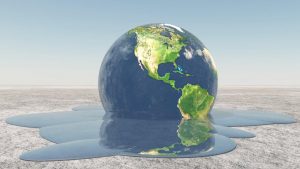 Tuesday, January 24, 2017
Tuesday, January 24, 2017
4:00-6:00 PM
SJRC Common Room (Oakes 231)
The terms “post-fact”, “post-truth”, and “post-reality” are now being used to label the new era we have entered. We are already seeing the erasure of climate data from servers and websites [1], and purveyors of the truth, including climate scientists, journalists, and academics are being put on warning. (The Climate Scientists witch-hunt [2] and the Professor Watchlist are just two of many indicators). Data refuge efforts are underway [3] amid concerns that the incoming administration will wage a war on scientific expertise [4].
At the same time that it is of upmost importance that facts, truth, and reality be asserted to counter the normalization of lies and fake news used to obscure the truth and manipulate the public, there is a large body of scholarship showing the non-innocent and often times harmful use of these terms in ways that collude with the forces of power, including colonialism, racism, militarism, etc.
We are creating this cluster to help us think through these issues during these extraordinary times.
Convened by Karen Barad, our first meeting is Tuesday Jan 24 4-6pm. This first meeting will focus the question of what these terms (fact, truth, reality) signal to each of us in relationship to our own research. We anticipate that these terms will spark a variety of different associations depending on our fields of study. Please join us.
[1] “DNR purges climate change from web page,” by Lee Bergquist (Milwaukee Journal Sentinel, Dec. 28, 2016) http://www.jsonline.com/story/news/politics/2016/12/28/dnr-purges-climate-change-on-web-page/95929564/
[2] “Trump Transition Ask Energy Dept. Which Employees Work on Climate Change,” by Christopher Dean Hopkins (NPR, Dec 9, 2016)
http://www.npr.org/sections/thetwo-way/2016/12/09/505041927/trump-transition-asks-energy-dept-which-employees-work-on-climate-change?utm_source=facebook.com&utm_medium=social&utm_campaign=npr&utm_term=nprnews&utm_content=2038
[3] Q&A: Michelle Murphy, the U of T professor who’s racing to preserve climate-change data before Donald Trump takes office,” by Steve Kupferman (Toronto Life, Dec 16, 2016)
http://torontolife.com/city/toronto-politics/qa-michelle-murphy-u-t-professor-whos-racing-preserve-climate-change-data-donald-trump-takes-office/
“Scientists are frantically copying U.S. climate data, fearing it might vanish under Trump,” by Brady Dennis (Washington Post, Dec 13, 2016)
https://www.washingtonpost.com/news/energy-environment/wp/2016/12/13/scientists-are-frantically-copying-u-s-climate-data-fearing-it-might-vanish-under-trump/?tid=sm_fb&utm_term=.401062d00845
“Scientists prepare to fight for their work during ‘the Trumpocene’” by Sarah Kaplan (Washington Post, Dec. 15, 2016)
https://www.washingtonpost.com/news/speaking-of-science/wp/2016/12/15/researchers-reckon-with-the-trumpocene-at-the-worlds-largest-earth-science-meeting/?utm_term=.1e2b399fde15
[4] “How Trump Could Wage a War on Scientific Expertise,” by Ed Yong (The Atlantic, Dec 2, 2016)
http://www.theatlantic.com/science/archive/2016/12/how-trump-could-wage-a-war-on-scientific-expertise/509378/


